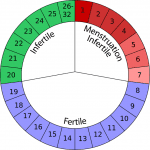
Is homeopathy scientifically established? Even if not, it’s rational to try it.
***
1. I freely acknowledge that there is a great deal of quackery which pretends to be science. This is true even in so-called “respectable” circles. When homeopathy was flourishing in the mid-1800s, “conventional” medicine was routinely engaging in such practices as blood-letting. Scientists (particularly anthropologists) often espoused flat-out racism, based on body type, as late as the 1920s (phrenology). The flourishing eugenics movement at that time called for the involuntary sterilization of black people.
Piltdown Man was a hoax (even obviously so, as S. J. Gould noted), but was accepted for over forty years (1912-1954) in the scientific community as excellent proof of human evolution. So-called Nebraska Man was “extrapolated” from a single tooth: later determined to be that of an extinct pig-like creature. A lot of pseudo-science is fraudulent, and charlatanism.
Whether homeopathy falls under the category of quack science, I know not. It strikes me as very strange and bizarre, prima facie, but then, so does a lot of modern physics, and I don’t claim to be an expert in these matters. My interest is solely in the question of whether it works.
2. Advocates of homeopathy could very well be right for the wrong reasons. If the pills work and are effective treatments of various maladies, something must account for that. I assume that the usual, accepted biochemical explanations can be discovered one day, and one need not accept the premise that effectiveness must be explained according to traditional homeopathic principles. Others may be “wrong for the right reasons.”
Skeptics might deny that homeopathic remedies work at all, in the face of overwhelming anecdotal and (perhaps some) rigorous experimental evidence, because they refuse to acknowledge the possibility of anything outside of currently accepted paradigms. They place virtually all their emphasis on theory, to the exclusion of anomalous evidence (which is dismissed out of hand). I find that to be an unbalanced and unscientific and improperly dogmatic mentality.
3. A person can and should use homeopathic medicines if / because they work. This is an entirely rational attitude and approach to life, having nothing whatever to do with being a quack, crank, or nut case. Virtually all people take pills or do other things all the time, without knowing all the inner mechanics of them. Every time I turn on a light switch, I pragmatically take advantage of technology and discoveries and inventions I know next to nothing about, so I can see at night (electricity and the intricacies of a light bulb; alternating current, power generators, etc.).
Likewise, when I take acetaminophen (Tylenol) for a headache, I have no idea how it works — nor do I particularly care to know. All I care about is that it takes my headache away. Rolaids take my stomach upset away. I don’t care about how it does that; I hated chemistry in high school. I become very pragmatic when it comes to pain, and quite “unmystical” and “unmagical.” I assume there is a scientific explanation; I don’t have to know it myself in order to benefit from same.
I take homeopathic pills for allergies and they work; not totally, but in terms of significant reduction of symptoms (allergy drugs work temporarily, but you have to “pay back” by having a return of the symptoms when the pills run out — I have gone through that process in the last few days with Claritin, because I spent the night in a house with three cats and a dog). I have taken hundreds of such pills (without side effects).
It’s not a self-induced “placebo improvement.” Usually I am engaged in other things and am not thinking about allergies. I pop the pills and my nose stops running; very simple and straightforward; utterly “empirical” (I’m sure any allergy sufferer can readily relate). Someone else can believe about that what they wish. I feel better! I also take a homeopathic sleeping pill (I did last night). It works; every time.
Now, this is all entirely rational and sensible behavior whether one knows all the inner mechanics of it or not. Let me illustrate by example. It is well-known that people were using molds for infections long before science discovered that penicillin could be derived from certain molds (the same could be said for many, many herbal medicines). That was the primitive scientific attitude: trial and error; discovery through experimentation and observation. The people who developed these cures didn’t say to themselves, “well, this doesn’t fit into our theory about how things are supposed to work, so we won’t believe in it, no matter how effective.”
The goal was to alleviate suffering, by whatever means, not to bolster one’s theories at all costs — up to and including needless human suffering –, or to arrogantly pretend that all knowledge about matter is known and that there is nothing left to discover. This was rational, as is taking a pill without knowing how it works. One could analyze this in quasi-algebraic terms:
A) Infection + mold (including x) = cure.
(x = unknown scientific processes, later discovered to be the workings of a form of penicillin)
B) Headache + acetaminophen (including x) = cure.
(x = scientific processes unknown by many users of acetaminophen, but known to scientists in detail)
C) Allergies + homeopathic remedy (including x) = reduction or elimination of allergic symptoms.
(x = scientific processes not yet known, but possibly yet to be known; meanwhile, the positive results of these unknown processes can be readily verified by present scientific method)
[the presence of discoverable, observable scientific, biochemical laws and processes is assumed throughout]
All three scenarios (from the sufferer’s vantage-point) are equally rational. Galileo is said to have uttered the following words about the earth when he was being pilloried by folks who were behind the times (in some ways) in science: “even so, it moves.” Users of homeopathy might be excused their retort to hard-nosed scientists who are convinced that their improved health is merely in their head: “even so, it works.”
This same dynamic is repeated in excessive “scientific” skepticism towards herbs, vitamins, health food diets, and chiropractic: all long since demonstrated to alleviate pain and various illnesses and maladies (as often verified in the standard medical and scientific literature). The fact that nuts can be found in the health food or nutritional or weight loss or paranormal / occultic “communities” (who tend to believe in some of these alternative treatments) doesn’t change the fact that certain things work.
There were and are nuts and kooks and evil people in the “conventional” scientific community also: people like Jack Kevorkian (“Dr. Death”), who gets off by watching people die (he helped them commit suicide), or the Nazi doctors who experimented on living Jewish people, or folks who sell human aborted baby parts for cosmetics, or who advocate cloning, or the ruthless, heartless butchers whom we call abortionists.
4. If I understand correctly, conventional allergy shots give the person some of the substance they are allergic to, in order to build up their immunity. Homeopathic pills for hay fever include ragweed and pollen. If one principle is valid, why is not the other, at least insofar as it has similarity to the first?
5. There are a host of things in natural science that are insufficiently understood, or not at all: sub-atomic particles, black holes, the origins of the universe and of life, etc. Evolutionists have little inkling about many details of many of the processes which produce the biological, morphological change that occurs in organisms. They simply assume that some explanation will be possible in due course. Why cannot the same approach be taken with regard to homeopathy? Granted, the concepts are very radical, but so has science always proceeded. Heliocentric theories overturned geocentric ones. They were once considered “wild and crazy” too.
The theory of relativity and quantum mechanics superseded Newtonian physics. Uniformitarianism transformed geology, and Darwinian evolution, biology. The germ theory and understanding of circulation caused a revolution in medicine and hygiene. Here, however, I am simply stating that if something works (especially where health is concerned), the inquisitive and open mind ought to wonder why and how it works, and study it further. If it can be explained by currently understood processes, great. If not, then that is something else we can learn about. The inquirer rejoices in a chance to learn more.
6. It seems to me that four choices exist:
i) Traditional homeopathic theory accounts for the demonstrated effects.
ii) “Conventional” biochemical understanding will eventually account for these effects, with further study and experimentation.
iii) A combination of i) and ii).
iv) Studies about homeopathy in reputable journals (relatively few; granted) are sheer nonsense, undertaken by quacks and pseudo-scientists who already have their minds made up, with biased subjects who wish for these results to be true, and thus create them, with shoddy research methods (all of which, somehow, journals like Lancet and the British Medical Journal inadvertently overlooked when they published the results).
I opt for ii, myself.
A friend of mine who is skeptical of homeopathy claimed that using a homeopathic remedy was an example of “folk religion” and “magical thinking.” But I fail to see what is “religious” or “magical” about either popping a pill to stop a runny nose or a double-blind, randomized, placebo-including rigorous study undertaken by Ph.D. skeptics of homeopathy, documented in Lancet or the British Medical Journal.
I was told that symptoms can be “fuzzy” and difficult to analyze with regard to cause and effect. Those aspects are well-covered in the studies so far undertaken, as far as they are concerned with objectivity and measurability. As for the “layman’s level of perception” (very much the category I am in), I don’t think it takes a rocket scientist to deduce that a migraine is gone, or a scratchy throat, watery, itchy eyes, and a runny nose no longer present. Any one-year-old child; nay, any dog or squirrel possesses that amount of self-awareness.
When I am concerned about my runny nose, the last thing on my mind is a scientific study. More often, it is social considerations and the annoyance that I am concerned about. But for me to know that my nose is no longer running requires neither a Ph.D. nor a nuanced, sophisticated understanding of the history of science, scientific method, or the anatomy, physiology, and biochemistry of the nose, and/or the immune and respiratory systems. It’s rather simple, really.
I am not interested in the theoretical justification of homeopathy. It sounds as weird to me as it does to many of its critics. I am only interested in why homeopathy works. The results of even goofy, eccentric theory can be tested. In this case, we find surprising results that can’t be dismissed, even by those who refuse to accept any tidbit of knowledge that doesn’t neatly fit into their preconceived notions.
I’m inclined to agree that homeopathy is fundamentally at odds with many scientific beliefs as held today (insofar as I know anything about it at all), but it has no effect on the testing of results, which is virtually my only interest here. I could think homeopathy was as ridiculous as a moon made of green cheese and a flat earth, and all homeopaths dumber than a box of nails, and still be intrigued as to how the potions concocted by such oddballs somehow work.
In any event, the principles of relativity and quantum mechanics were vastly different ways of looking at things, compared to the known laws of Newtonian physics, as late as the 1920s. Lyell’s principles of uniformitarianism went against the common understanding of geology as late as 1833. This happens all the time in the history of science. But again, none of this has any bearing on whether or why these remedies work.
My friend expressed skepticism that my homeopathic allergy pills worked, and implied that I was experiencing only a placebo effect. I had a great deal of fun with that:
Maybe we only pretend to “take the pill” too, since we are — according to you — merely pretending to “get better.” Just like I pretended to “fall asleep” last night after popping my bedside pills . . . I really was awake, only pretending to be asleep. I thought I was dreaming about being awake, but I was really awake and dreaming about being asleep.
. . . So when my runny nose and generally clogged-up throat improve (when I take the homeopathic pill) and get worse (when the effects wear off; it takes about two hours) repetitively for six weeks during hay fever season, I am only deluding myself that I go back and forth, and in fact, this is obviously a steady course of “natural improvement”? Interesting.
Such personal experience was demeaned as merely “subjective verification.” Let’s see, then; I guess that would be the “subjective” evidence of my nose not running at the dinner table and my kids noticing that. Not that this proves anything. Maybe they only think that they don’t see my nose running, huh? They’re blinded by their love for me. Or, this is “wishful thinking.” I confess that I do wish that my nose would stop running, but I am not deluding myself when it actually does.
If something works, I take it. I take Tylenol for my migraines, and it works. Or is that to be immediately dismissed as “anecdotal, wishful thinking, subjective, memory confabulation,” etc.? Does anecdotal evidence count only for conventional medicine but not for homeopathic ones? Or is it that when a doctor asks me “how do I feel?,” my reply has little relation to reality, since it is merely anecdotal and thus of no rational import?
My friend then said that it is not enough that a remedy works; one must understand the principles behind it. But do most people understand all the biochemical ins and outs of acetaminophen or aspirin or cough syrup? Some do, but most people certainly don’t. Perhaps my friend should go on a door-to-door crusade to convince people that they must know everything about every medicine they take, in exhaustive biochemical detail?
There are plenty of remedies where we don’t fully understand how they work (I think one scientist or doctor mentioned quinine). That doesn’t stop them from being prescribed. One simply has to take my position on homeopathy: that it will be explained one day according to the consensus of science.
In the meantime, we can participate in its medicinal benefits, just as primitive peoples in the jungle benefited from molds (penicillin) and a host of herbal medicines without knowing why. It is completely rational behavior to take a pill that works, not knowing how it works. It is not strictly scientific as far as I am personally concerned, inasmuch as I don’t know why and how something works; I’ll grant that.
My friend stated that taking such a pill was “religious.” But it is not at all; no more than taking aspirin or Tylenol is a religious act. It is a pragmatic act which incorporates laws of science and their particular effects, to my benefit, just as I utilize the laws of internal combustion engines to give me the blessing of traveling from point A to point B.
The Wright brothers learned aerodynamics and learned how to fly, so I can now fly from point A to point B, too. Or do I have to learn about all that (including jet propulsion now) before I can set foot on a jet, lest I be “unscientific” and unduly “religious” while flying? Tylenol works for most people who take it, I think. It’s not a matter of separate “realities,” but of common experience.
Now, I’m not trying to place personal experience and anecdotal evidence over clinical experimentation and verification. I’m all for clinical evidence as the clincher and determinant of “successfulness” within a scientific framework of testing and falsifiability. But I don’t completely dismiss anecdotal and personal confirmation of health improvement. Nor does any scientific study, which often has to rely on the reports of subjects to even test what it is testing in the first place (where human health matters are concerned). The two cannot be separated; they are inevitably intertwined.
[added in one of the comments box] It’s absolutely irrelevant to my case if I take Pill X and feel better. I neither care why it worked like that, nor whether I prove it scientifically or not. If it happens over and over, it’s utterly sensible and rational (as I argued) to keep taking it and getting the same result. What I can do is write stuff like this and suggest that it might help another, just as it helped me.
Homeopathic remedies have repeatedly helped with various remedies in my family: at least in an “anecdotal” sense: but when someone is sick and needs help and receives it, they don’t care about all the fine points and fine print and soliloquies about the scientific method.
***
[further little exchange from 2-4-18]
Cynthia Schrage Homeopathy is malarkey. Zero science to back it up. The mind is a powerful thing. If it works, great.
It’s more than just placebo effect. But let’s assume for the sake of argument that you are right. If taking a pill that actually is doing nothing produces a placebo effect of truly feeling better, would you agree that it is rational and sensible and a good choice to take the pill that is doing nothing?
That gets back to the pragmatism issue. I take, e.g., homeopathic pills for allergy relief. They largely (not totally) stop my symptoms. I couldn’t care less why they do that. All I care about is relief. They provide that. Therefore, it is rational to take them, since the purpose of a medicine is to alleviate symptoms.That’s how I argued it in my long paper, linked above.
Even if I agreed that that is merely the placebo effect, it would have zero impact on whether I take them or not, because they are successful pills.
Personally, I agree that homeopathic theory sounds (prima facie) goofy and weird. But my own opinion is that they have stumbled upon something that works, that even they don’t fully understand, or are able to explain according to scientific knowledge.
I suspect that the answer / explanation is something along the lines of the “like cures like” principle, that is the same principle behind vaccines, or along the lines of folks using mold to help pain, and then scientists later discovering that it contained penicillin.
It was rational all along to use the treatment, whether or not the mechanics of it were understood.
What we do is not just that, anyway. We also do herbalism, vitamins and minerals, superfoods, and whole foods (and in her case, gluten-free and dairy-free, too).
My wife’s depression was cured mainly through amino acid supplements. That was supervised by her doctor, with his full permission, back in 1980. She had been on Zoloft the previous seven years. So now we have the same results with no side effects and no “zombie-like” feeling.
In the present case [kidney stones] we now have two herbal supplements, one homeopathic treatment and one superfood on the way, as well as the usual heat treatments, lots of water with lemon, etc. If she gets better, it’s a matter of complete indifference to both of us how something works. Our only concern is whether it works or not.
Many people are skeptical of, e.g., chiropractic. In the meantime, many millions of us regularly benefit from it. We’re not so stupid that we can’t figure out whether we feel better or not. An aching back vs. the absence of same doesn’t take a rocket scientist to figure out.
I’m all for conventional medicine, too. I just don’t rule out alternatives. And the number of doctors who agree and take a both/and approach is growing all the time.
We’ve had a lot of depression in my family. In two cases, it required ongoing use of drugs (and fairly successfully), in another it was drugs for a time and then weaned away from it, to no drugs. In my wife’s case it was an unhappy use of drugs and then successful use of completely natural, drug-free supplements.
It’s both/and (conventional and alternative / holistic / natural medicine). My leading philosophy in health issues is pragmatism: whatever works, I do.
See also:
Conventional Scientific Evidence for Homeopathy (Great Overview from Dana Ullman) [Facebook, 2-7-18]
Mother Teresa and Homeopathy (Dana Ullman)
***
(originally 2-26-03; additions and minor editing on 2-4-18)
Photo credit: Various homeopathic remedies. Photo by Wikidudeman (2007) [public domain / Wikimedia Commons]
***












